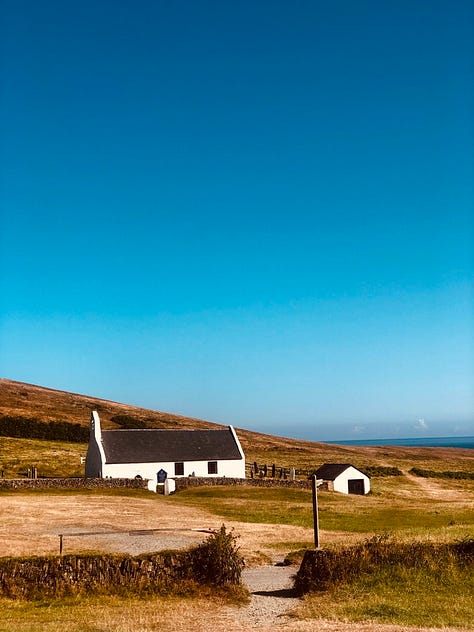

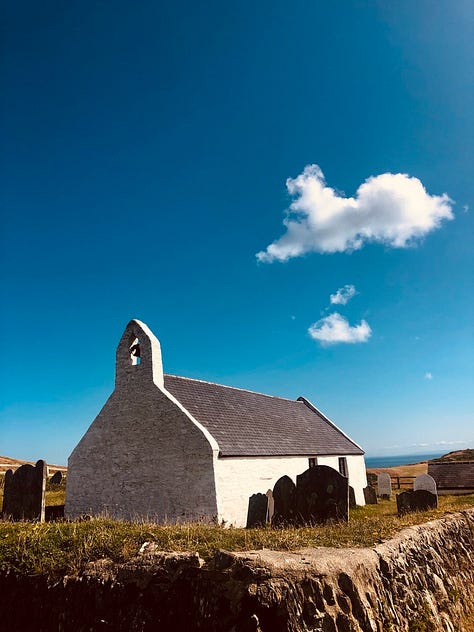

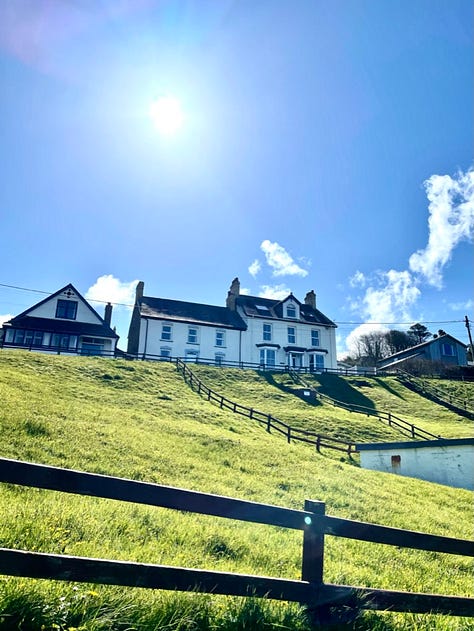
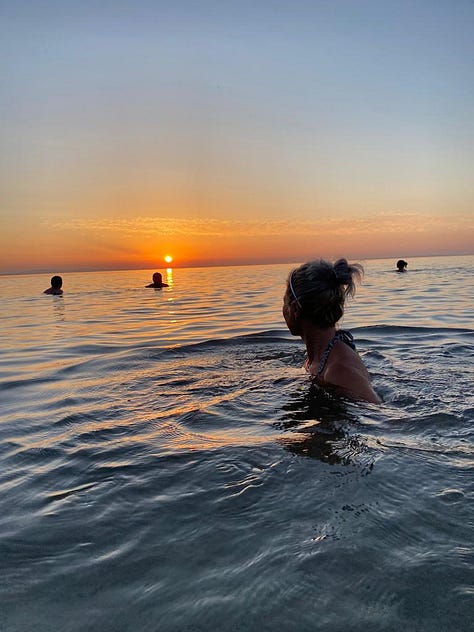
If you’ve just discovered my Substack or have been a regular free subscriber to my newsletter ‘with ease’ thanks for taking the time to connect. I dearly hope this essay resonates and if you find some value in my writing please consider becoming a paid subscriber. Thank you in advance, it really does mean the world to me.
Dear friend
How are you today? My head is here, but my heart is still miles away in west Wales. Since I wrote about my connection to Cartrefle in last Sunday’s newsletter - the beach house that owns my soul, but will never belong to me - something has been stirring within me. A restlessness, so life-giving, so utterly necessary, despite making no practical sense to me whatsoever.
Bare with me, as I explain something to you…
Last week I discovered a Welsh word that stopped me in my tracks - cynefin.

It’s pronounced “kun-ev-in,” and like so many Welsh words, it holds depths that English simply cannot reach. Cynefin means your place of belonging, not just where you live, but where your soul recognises itself. It’s about rootedness, identity, and that profound sense of being exactly where you’re meant to be. It encompasses not just the physical place, but the community, culture, and heritage that surround it. It’s the habitat of your heart. And oh my goodness, when I read about cynefin, everything made perfect sense, about my craving and yearning for Cartrefle (otherwise known to locals as the house on the beach.)
I’ve been living with this deep burning desire since 2017 - when I first walked up to the beach house - without having the words for it. Through the thirty or so houses I’ve lived in, the countless moves, and decades of searching - all along, I’ve been seeking my cynefin. This deep, cellular recognition of home, goes way beyond ownership, way beyond logic, beyond status or anything our property obsessed culture teaches us to value.
This beautiful irony isn’t lost on me, well I hope it isn’t, now that I understand that I’d found my cynefin in Wales, the very place where this concept was born. From a young age I was told that security comes from ownership, that success was measured by property value, where “getting on the housing ladder” was presented as the ultimate goal, what I’m trying to express is that cynefin whispers something different to me. Maybe this suggests that true belonging might have nothing to do with what’s in my head about ownership, but everything to do with what’s in my heart about “belonging.”
This feels revolutionary right now, doesn’t it? When housing prices have pushed homeownership beyond reach for so many of us, when people are more geographically scattered from family and their roots than ever before, maybe we need new ways of thinking about what “home” actually means.
I think about the wonderful women who come to my retreats at Cartrefle, seeking something they can’t quite name. They sometimes arrive restless, disconnected, some of whom carrying that same yearning I’ve carried for years. And in that Welsh beach house, something shifts for them. They don’t own the place, they’ll likely never see it again, yet for those few days, they experience something that feels like coming home. They’ve tasted their own version of cynefin perhaps.

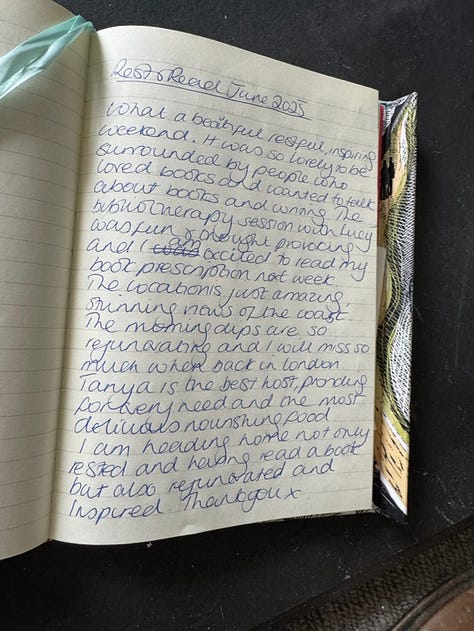
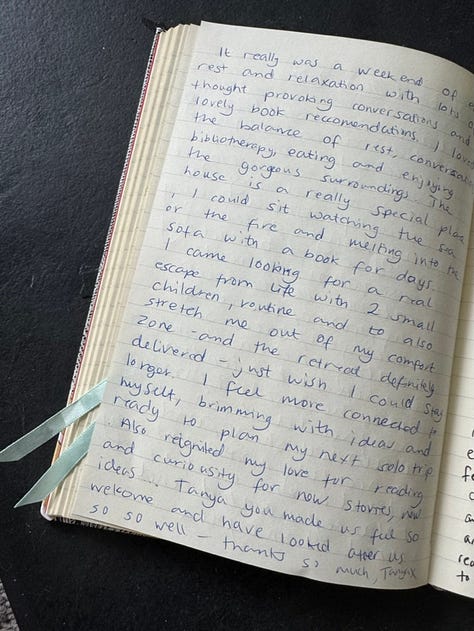
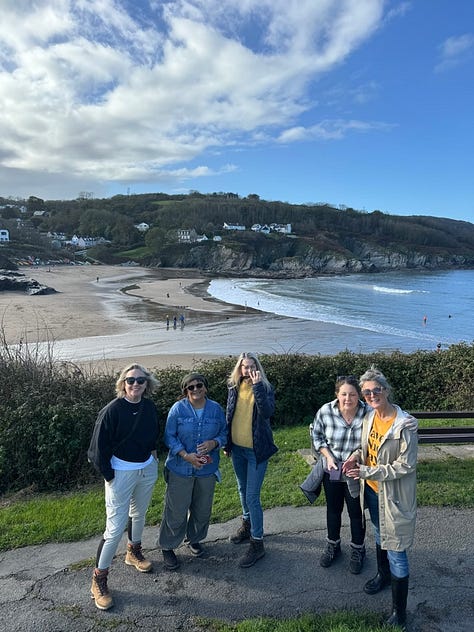
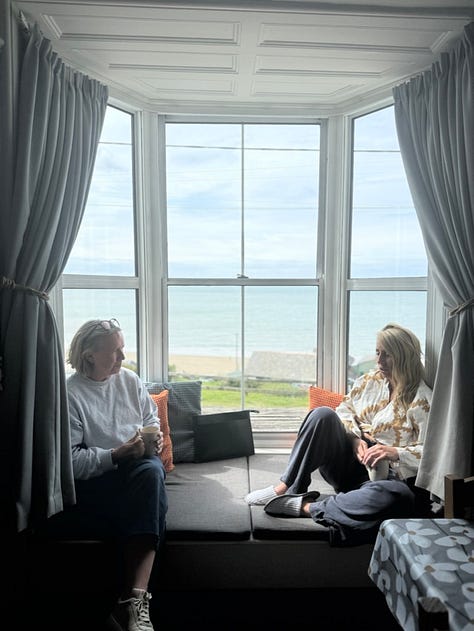

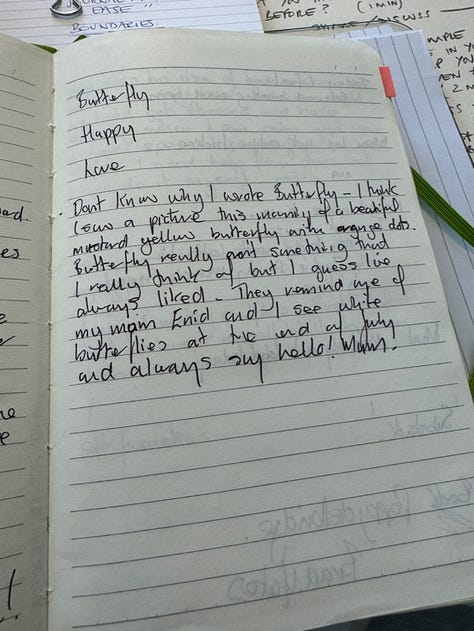
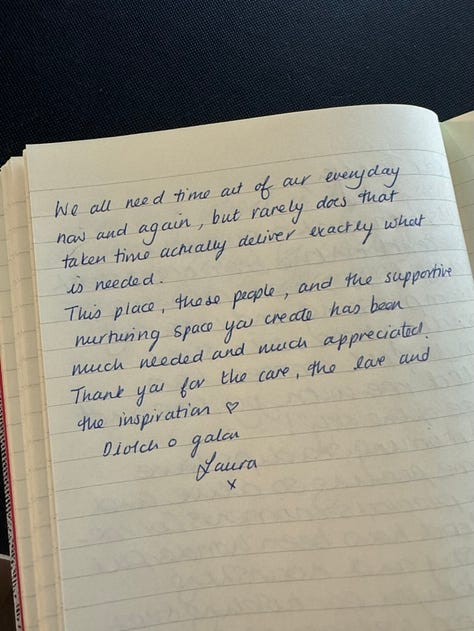
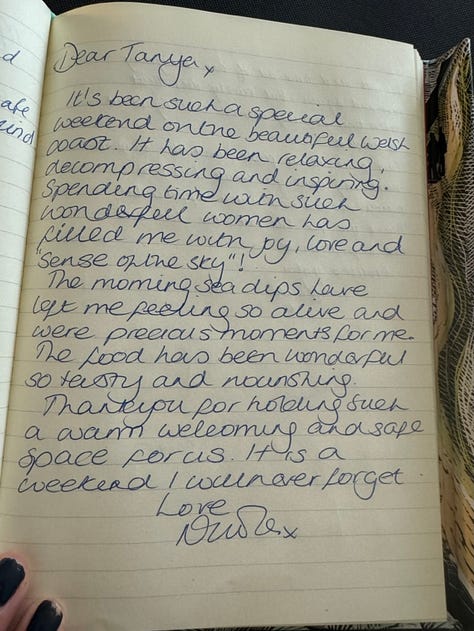
Maybe that’s what we’re all searching for - not a house we can afford but a place that affords us the feeling of being wholly, completely ourselves. A place that recognises us as much as we recognise it.
The more I explore this concept, the more questions it raises. If cynefin isn’t about ownership, what is it about? How do we create that sense of belonging in an increasingly rootless world? I know this may come across as bizarre, but could you have multiple cynefin, or is it something singular and irreplaceable? What happens when your cynefin is threatened, sold, changed beyond recognition. Because this has happened to me with this beach house. It was sold a year ago, thankfully I managed to make friends with the new owners, who have been lovely and unbelievably generous, so much so I’ve secretly adopted them as family. They have huge refurbishment plans booked in for 2026, and on the architectural drawings they’ve included a ‘reading room’, so you can imagine my response when I first learnt about this news! I hope and pray that Cartrefle and I never, ever part.
I’ve lost a few homes in my time, so I know how raw these emotions can be. I think about refugees who have lost their ancestral cynefin. Young people priced out of their communities where they grew up, it happens a lot here in Wales particularly along the coastal regions. I think of digital nomads seeking rootedness while staying mobile. We have all witnessed in the media recently, and maybe more so within our local communities, that we are living through a crisis of belonging, but maybe just maybe Welsh wisdom holds some answers.
I’ve promised myself that I’m going to dig a little deeper into this subject matter. I’m going to research property ownership, but through the eyes of someone understanding cynefin. Because I think I’m on the cusp of something quite extraordinary. And I have my own story to share. Obviously, I’m still learning what it means to have found my cynefin in a place I’ll never own. But here’s what I’m beginning to appreciate: having language for this yearning changes everything for me. Cynefin validates what I’ve always felt but couldn’t express. It suggests that my relationship with Cartrefle isn’t strange or impractical or foolish - it’s deeply human. Isn’t this what humans have always done when they’ve found their place in the world? And isn’t everyone seeking a ‘place of home’ with ease?
Maybe you’ve found your cynefin and cherish it fiercely. Maybe you’re still searching, carrying that restless hunger for a place that feels like home. Maybe you’ve lost yours and are wondering if such deep belonging is possible again?
I believe it is.
I believe we ALL deserve our cynefin, whether it comes through ownership or tenancy, whether it’s a million pound beach house or a community garden, whether it’s a place where we were born or somewhere we discover by accident through serendipity.
I’ll leave you with some thoughts and questions… the Welsh understood something we’re only beginning to remember: that belonging is birthright, not commodity. That home is recognition, not transaction. That sometimes the places we can’t possess are the ones that possess us completely. And maybe that’s exactly as it should be. So how do we create belonging in a world where traditional home ownership is increasingly impossible? What happens when we reframe success around our desire for deep connection rather than through property value?
Until the next time,
Take care and stay safe xx
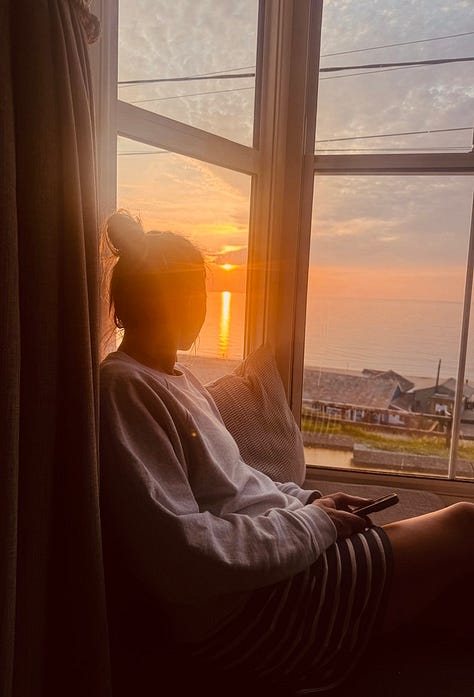

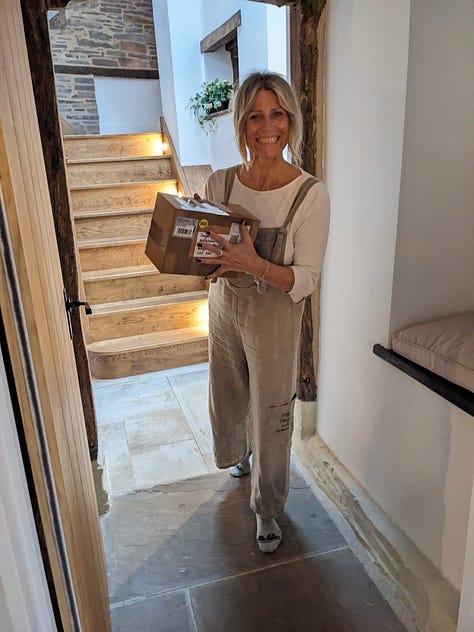
About me… I’m Tanya Lynch, a mother, a ridgeback owner and the founder of Ease Retreats. I love what I do, collaborating with authors and creatives, hosting retreats in beautiful venues across the UK. A news series of The Bibliotherapists podcast which I co-host with my dear friend Toni Jones launches in July. I’m also a therapeutic journalling coach and through my programme ‘Rage on a Page’, I help midlife women channel their emotions into something more positive and creative. Each Thursday I host an online journalling club ‘Journal with Ease’ and it’s free for paid subscribers to attend. If you have any questions about the benefits of therapeutic journalling, please reach out and connect. I’m usually on a beach walking the dogs, hosting retreats or writing in my journal.





What a great sentiment!
Mm, cynefin! Another fab Welsh word for which English has no comparison is Hiraeth.
We moved here, to West Wales over a decade ago...best decision ever